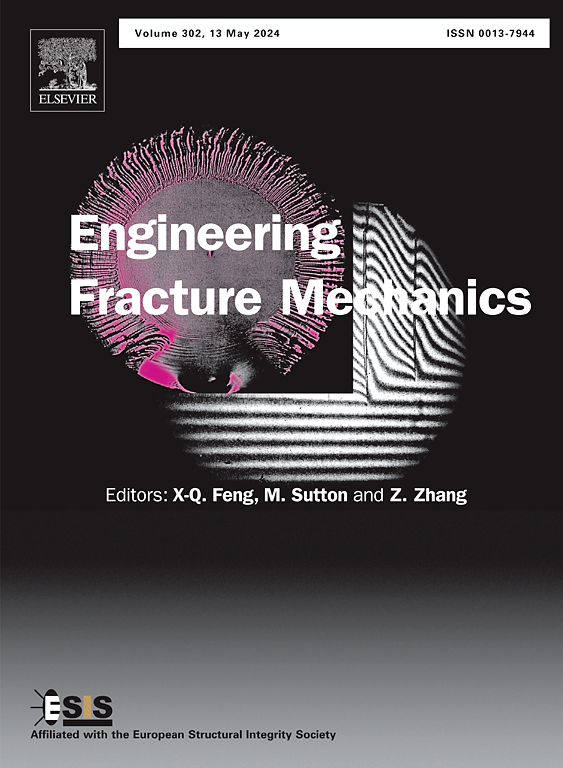Investigation on fatigue performance and microstructure of split sleeve cold expansion of TC4 holes
IF 4.7
2区 工程技术
Q1 MECHANICS
引用次数: 0
Abstract
The exceptional performance of pivotal structural components serves to enhance the aircraft’s efficient and secure operational profile. The structural components are connected and assembled primarily through fastener holes. However, discontinuities in structural components can lead to stress concentrations around holes, resulting in fatigue failure of the structural components. This is significant in enhancing the fatigue performance of the hole structure. In this study, TC4 titanium alloy was strengthened by split sleeve cold expansion (SCE) technique and its effect on residual stress, microstructure and fatigue fracture was investigated. The results indicate that SCE induces residual compressive stress at the hole edges, thereby inhibiting fatigue crack propagation. Geometrically necessary dislocations are formed at the interface between the α phase and β phase to accommodate the strain gradient. Low angle grain boundaries (LAGBs) impede dislocation movement and accumulate dislocation density, leading to an increase in LAGB misorientation and subsequent transition to high angle grain boundaries. The SCE process led to the formation of subgrain boundaries and refined the grains in the material. The fatigue life of the material was extended by 6.2 times, with peak compressive residual stresses up to 244 MPa at the inlet side. The combined effects of residual compressive stresses, back stress and grain refinement contribute to improving the fatigue life of the hole structure.
TC4 孔分体式套筒冷膨胀疲劳性能和微观结构研究
枢轴结构部件的优异性能有助于提高飞机的运行效率和安全性。结构部件主要通过紧固件孔进行连接和组装。然而,结构部件的不连续性会导致孔周围的应力集中,从而导致结构部件的疲劳失效。这对提高孔结构的疲劳性能意义重大。在这项研究中,采用分体套筒冷膨胀(SCE)技术强化了 TC4 钛合金,并研究了其对残余应力、微观结构和疲劳断裂的影响。结果表明,SCE 会在孔边缘产生残余压应力,从而抑制疲劳裂纹的扩展。为了适应应变梯度,在 α 相与 β 相的界面上形成了几何上必要的位错。低角度晶界(LAGB)会阻碍位错运动并积累位错密度,从而导致 LAGB 错向增加,随后过渡到高角度晶界。SCE 过程导致亚晶界的形成,并细化了材料中的晶粒。材料的疲劳寿命延长了 6.2 倍,入口侧的残余压应力峰值高达 244 兆帕。残余压应力、背应力和晶粒细化的综合效应有助于提高孔结构的疲劳寿命。
本文章由计算机程序翻译,如有差异,请以英文原文为准。
求助全文
约1分钟内获得全文
求助全文
来源期刊
CiteScore
8.70
自引率
13.00%
发文量
606
审稿时长
74 days
期刊介绍:
EFM covers a broad range of topics in fracture mechanics to be of interest and use to both researchers and practitioners. Contributions are welcome which address the fracture behavior of conventional engineering material systems as well as newly emerging material systems. Contributions on developments in the areas of mechanics and materials science strongly related to fracture mechanics are also welcome. Papers on fatigue are welcome if they treat the fatigue process using the methods of fracture mechanics.

 求助内容:
求助内容: 应助结果提醒方式:
应助结果提醒方式:


